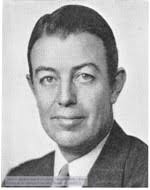
Whorf theorized that the meaning of the word empty implied to the worker that “nothing” was there to be cautious about so the worker behaved accordingly.


Someone tossed a cigarette or lighted match into one of the “empty” drums, it went up in flames, and started a fire that burned the business to the ground. On the other hand, empty gasoline drums were stored in another area, but employees were more careless there. The workers were always careful around those drums. Those that contained gasoline were surrounded by signs warning employees to be cautious around them and to avoid smoking near them. One of his cases while working for the insurance company was a fire at a business where there were a number of gasoline drums. He developed this idea through both his work with Sapir and his work as a chemical engineer for the Hartford Insurance Company investigating the causes of fires. Simply stated, Whorf believed that human beings see the world the way they do because the specific languages they speak influence them to do so. His hypothesis proposes that the words and the structures of a language influence how its speakers think about the world, how they behave, and ultimately the culture itself.

Whorf believed that the reverse is also true, that a language affects culture as well, by actually influencing how its speakers think. Anthropologists need to learn the language of the culture they are studying in order to understand the world view of its speakers. Sapir and his predecessors were well aware of the close relationship between culture and language because each culture is reflected in and influences its language. This was due primarily to the deliberate efforts of the United States government to force Native Americans to assimilate into the Euro-American culture. Sapir, considered the father of American linguistic anthropology, was responsible for documenting and recording the languages and cultures of many Native American tribes, which were disappearing at an alarming rate.

In the 1920s, Benjamin Whorf was a graduate student studying with linguist Edward Sapir at Yale University in New Haven, Connecticut.


 0 kommentar(er)
0 kommentar(er)
